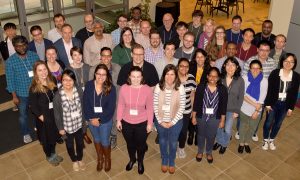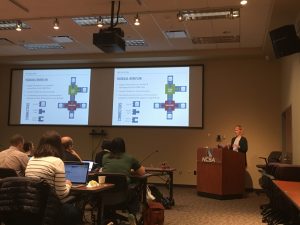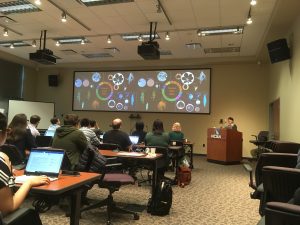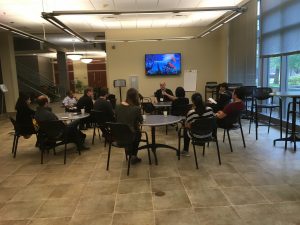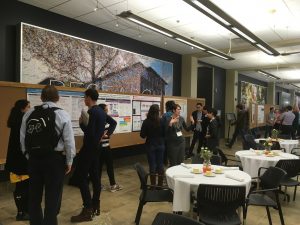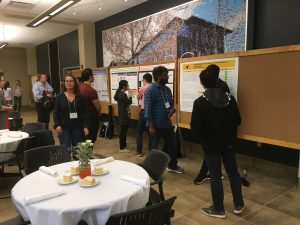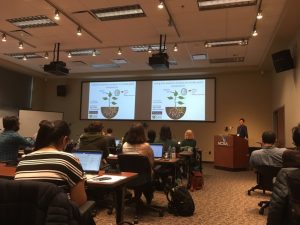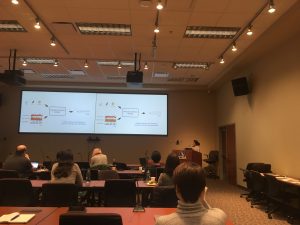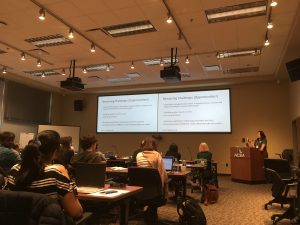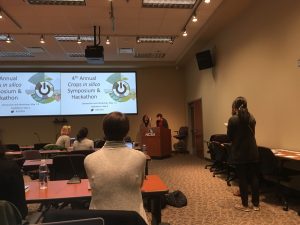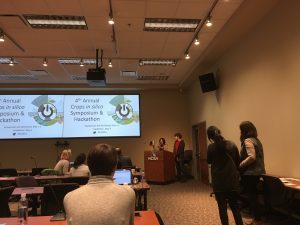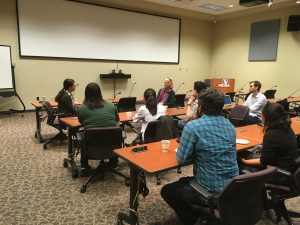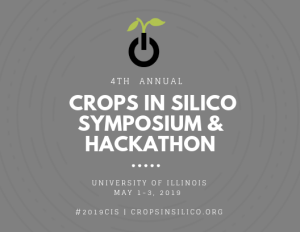
4th Annual Crops in silico Symposium & Hackathon
Opening Keynote: May 1
Symposium and Workshop: May 2-3
Hackathon: May 3
Urbana, Illinois
Symposium & Hackathon Agenda
SELECT PRESENTATIONS FOR DOWNLOAD
-
Modeling Plant Life in Computer Graphics – Bedrich Benes, Purdue University
-
Using Flux Balance Analysis to Model Plant Metabolism – Lee Sweetlove, Oxford University
-
Sharing Data between Maize and Sorghum – James Schnable, University of Nebraska at Lincoln
-
A QTL-Based Phenology Model of the Common Bean – Chris Hwang, University of Florida
-
Open SimRoot Modeling Phenes and Phenotypes for Soil Resource Capture – Jonathan Lynch, Pennsylvania State University
-
Combining Gene Regulatory Network and Kinetic Modeling of Lignin Biosynthesis in Arabidopsis – Longyun Guo, Purdue University
MEETING RECAP
The Fourth Annual Crops in silico Symposium and Workshop was held May 1-3, 2019 at NCSA. The objective of the Symposium and Workshop was to identify how the Cis community can communicate and coordinate their research, training and educational activities. The Symposium had 60 registrants from 13 institutions.
Graeme Hammer, Crop Science Professor and Director of the Centre for Crop Science in the Queensland Alliance for Agriculture and Food Innovation (QAAFI) kicked off the symposium on Wednesday, May 1st with his talk on Biological Reality and Parsimony in Crop Models – Why We Need Both in Crop Improvement!
The first full day of the symposium began with Meagan Lang providing an update on the Current Status of the Crops in silico Framework. The Symposium had three themed speaking sessions: Structural Analysis, Genes to Crop Growth, and Development and Growth. Eight junior researchers gave short format “lightning talks” to present their research. Nine attendees presented research posters during the interactive poster session.
The goal of workshop on the afternoon of May 2nd was to create new research collaborations. First, participants were asked to identify challenges to their research, then they were matched with collaborators. Participants met and committed to many new research collaborations during the meeting. Researchers presented their matches on the morning of May 3rd.
Stephen Long concluded the activities on May 2nd with his presentation, Mathematically Guided Improvements of Photosynthetic Efficiency for Sustainable Increase in Crop Productivity.
The goal of the Hackathon was to introduce and familiarize model scientists with the yggdrasil package and user interface. During hands-on examples, participants learned how to use the yggdrasil package and user interface to connect two models written in Python and C from package installation to model transformation and execution. Anyone interested in walking through the hackathon materials on their own can do so using the documentation on GitHub.
- Group Photo
- Meagan Lang presenting Cis framework, yggdrasil
- Mao Li presenting 3D Plant Structure Quantification Using X-ray Imaging and Advanced Morphometrics
- Small Group Discussion with James Schnable
- Poster session
- Poster session
- Lee Sweetlove presenting Using Flux Balance Analysis to Model Plant Metabolic Networks
- Diane Wang presenting Can Genomics Inform Physiological Complexity in Plant Process-based Models?
- Addie Thompson presenting Estimating Parameters for Genotype-Specific Crop Growth Model
- Challenge/Offer Matches
- Challenge/Offer Matches
- Small Group Discussion with Mao Li
ABOUT THE SYMPOSIUM, WORKSHOP & HACKATHON
Symposium and Workshop: Expanding the Framework
The Symposium will broadly highlight advancements in plant biology gained from modeling, big data collection and analysis, and computation. The goal of the Symposium is to explore the interests and needs of the plant and computer science communities for building virtual crops. The accompanying workshop provides an opportunity engagement and collaboration.
Hackathon: Lowering the Barriers to Model Integration
To build on the success of the Hackathon last year, we include another one that will further lower the barriers to collaborate on model integration within the Crops in silico community.
The Hackathon will consist of short tutorials alternating with practical exercise that will guide participants through model integration using the Crops in silico framework, which enables communication, orchestration, and transformation.
Computer programmers, software developers, interface designers and plant biologists will work side-by-side during this hands-on event. Only basic knowledge of coding and version control will be necessary.
REGISTRATION
Registration for the Symposium and Workshop is free and includes lunch thanks to generous support from the Institute for Sustainability, Energy, and Environment at the University of Illinois. You must register by March 31 to be considered for a presentation.
Register as an attendee
RECEIVE FUNDING TO ATTEND
The Crops in silico organizers are committed to increasing diversity at the Symposium and Workshop and have therefore set aside funds to support the participation of eligible underrepresented minority students, faculty, and scientists. Applicants are encouraged to apply for funding early by noting your needs on the registration form. Support is limited and available at the organizer’s discretion. The funding application period is now over.
POSTERS
The poster session will provide an opportunity for individuals to present their research and offers an excellent venue for extended informal discussion with meeting attendees. Submit your poster abstract on the registration form.
PRESENTATIONS
Half of the speaker slots will be open for any member of the Crops in silico community. If you feel you are, or want to be, a member of the community and want to share your work, we encourage you to apply for either a full presentation slot (15 minutes plus question time) or a lightning talk (five minutes total) on our registration form. We especially encourage early career participants (grad students and postdocs) to present their research. Note that in case of more interest than time available we will make a selection based on variety of topic and fit with the overall program. Submit your application to be a speaker (and your title talk and abstract) on the registration form; you must register by March 31 to be considered for a presentation. The deadline to apply for speaker has passed.
KEYNOTE SPEAKER
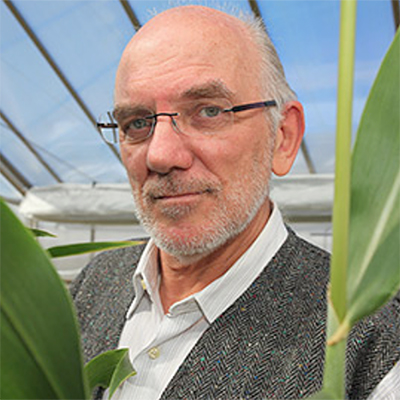
Graeme Hammer
Crop Science Professor and Director of the Centre for Crop Science in the Queensland Alliance for Agriculture and Food Innovation (QAAFI), University of Queensland, Australia
Biological Reality and Parsimony in Crop Models – Why We Need Both in Crop Improvement!
The potential to add significant value to the rapid advances in plant breeding technologies associated with statistical whole genome prediction methods is a new frontier for crop physiology and modelling. Yield advance by genetic improvement continues to require prediction of phenotype based on genotype, and this remains challenging for complex traits despite recent advances in genotyping and phenotyping. Crop models that capture physiological knowledge and can robustly predict phenotypic consequences of genotype-by-environment-by-management (G*E*M) interactions have demonstrated potential as an integrating tool. But does this biological reality come with a degree of complexity that restricts applicability in crop improvement? Simple, high speed, parsimonious models are required for dealing with the thousands of genotypes and environment combinations in modern breeding programs. In contrast, it is often considered that greater model complexity is needed to evaluate potential of putative variation in specific traits in target environments as knowledge on their underpinning biology advances. Is this a contradiction leading to divergent futures? Here it is argued that biological reality and parsimony do not need to be separable. It is further asserted that the structure needed for the next generation of crop models to be most effective perhaps requires both jointly, along with the capacity to evolve in crop growth and development process algorithms. Specific examples in modelling photosynthesis from biochemical scale and canopy development from plant scale are used to highlight the concepts presented.
Hammer conducts research on the physiology and genetics of complex adaptive traits in field crops with a focus on water productivity in cereals. His research underpins the development of mathematical models of crop growth, development and yield that enable simulation of consequences of genetic and management manipulation of crops in specific target environments. His research approach provides unique opportunities to aid crop management and design for enhanced production in water-limited environments; enhance the utility of molecular breeding for drought adaptation; and identify avenues to cope with climate risks in field crop production. He is a Fellow of the Australian Agriculture Institute and was awarded the Australian Medal for Agricultural Science in 2013 and Farrer Memorial Medal in 2012.
INVITED SPEAKERS
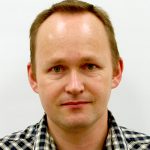
Bedrich Benes
Computer Graphics Technology and Computer Science Professor,
Purdue University
Dr. Benes works in generative methods for geometry synthesis, and his main focus is in procedural, inverse procedural modeling, and simulation of natural phenomena. He has published over 140 research papers in the field and he has been sponsored by the National Science Foundation, NASA, Adobe Research, Intel, Siemens, Samsung, Department of Energy, and Ford Inc., among others. Bedrich is Purdue University faculty scholar, and a director of the High Performance Computer Graphics Laboratory.
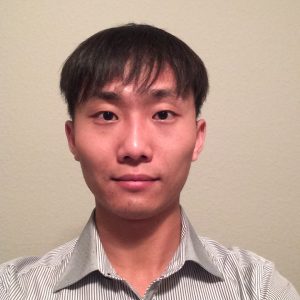
Longyun Guo
Biochemistry Ph.D. Candidate,
Purdue University
Longyun Guo works on the mathematical modeling of secondary metabolism in plants. He obtained his B.S. in bioinformatics from Shanghai Jiao Tong University in 2012. He is completing his Ph. D in Biochemistry at Purdue under the advisement of Prof. John Morgan. Currently he focuses on the modeling of lignin biosynthesis, since lignin content and composition are engineering targets for biofuel production. Arabidopsis is an excellent model system as most enzymatic steps are well characterized and hundreds of gene regulatory interactions are reported. A dynamic model of lignin biosynthesis was developed by integrating different types of information, which contributes to deeper understanding of underlying regulatory mechanisms, and help to provide a rational design for lignin biosynthesis manipulation.
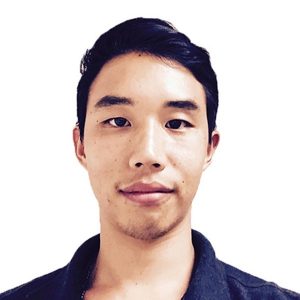
Christopher Hwang
Agricultural Biological Engineering Ph.D. Candidate,
University of Florida
Chris works on bringing genetic information into crop growth models. He obtained his B.S. in Agricultural Biological Engineering (ABE) from the University of Illinois at Urbana Champaign in 2014, and completed his M.S. in ABE from the University of Florida in 2016. He is completing his Ph.D. in ABE at the University of Florida with Dr. Melanie J. Correll. Currently, Chris’ focus is on incorporating nonlinear gene-by-environment interactions into phenology models that can be implemented in existing crop growth model frameworks.
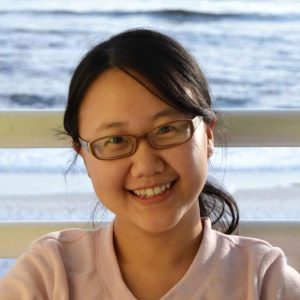
Mao Li
Postdoctoral Associate,
Donald Danforth Plant Science Center
Mao Li is a mathematician who specializes in plant science. She is a Postdoc Associate in Topp Lab at Donald Danforth Plant Science Center. Her research focuses on quantitative data analysis, development of mathematical methods such as persistent homology based approaches, and computational algorithms to quantify plant morphology, below and above ground, from microbe to the globe.
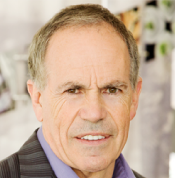
Steve Long
Plant Biology and Crop Sciences Professor,
University of Illinois at Urbana-Champaign
Stephen (Steve) P. Long is an environmental plant physiologist who studies how to improve photosynthesis—the process of turning sunlight and carbon dioxide into the sugars that drive yield—to increase the yield of food and biofuel crops. Steve has added to our understanding of the long-term impacts of climate change, such as rising levels of carbon dioxide and ozone on crops. Currently, he is the Ikenberry Endowed University Chair of Crop Sciences and Plant Biology at the University of Illinois and Distinguished Professor in Crop Sciences at Lancaster University.
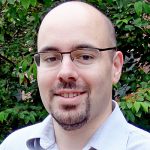
James Schnable
Agronomy & Horticulture Assistant Professor,
University of Nebraska at Lincoln
James’ research group focuses on using both comparative genomics and new high-throughput phenotyping techniques to link genes to functions in maize, sorghum, and allied species such as foxtail and pearl millet. His lab is currently funded by grants from the National Science Foundation, The U.S. Department of Agriculture, ARPA-E, the Nebraska Corn Growers Association, and private industry. During his time at the University of Nebraska, he has collaborated with statisticians, engineers, biochemists, and applied plant breeders resulting in 43 peer-reviewed papers over the past four years. James has founded or co-founded three startups, including Dryland Genetics — which uses advanced breeding methods to develop higher yielding cultivars of naturally water use efficient crops.
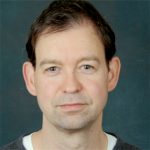
Lee Sweetlove
Plant Sciences Professor,
University of Oxford
The goal of the research in the Sweetlove group is to generate sufficient understanding of plant metabolic networks that they can be rationally engineered for the improvement of crop productivity and resource utilization. His background is in experimental plant biochemistry, but over the last decade his group have increasingly been using large-scale computational models of plant metabolic networks, testing the findings and hypotheses that emerge from the models with multi-gene transgenic plants.
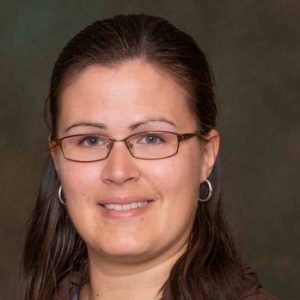
Addie Thompson
Plant, Soil, and Microbial Sciences Assistant Professor,
Michigan State University
Addie Thompson’s lab is interested in studying maize, and how different genotypes grow in different environments. They use many technologies and approaches to investigate this area, from quantitative genetics to phenomics to statistical and physiological modeling. Emphasis is placed on addressing biologically meaningful and agriculturally relevant questions, with both domestic and international potential applications.
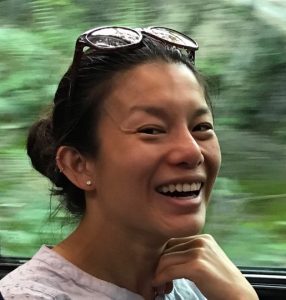
Diane Wang
Geography Post-doctoral Associate,
The State University of New York – Buffalo
Diane Wang’s research aims to understand the genetic and physiological controls that underlie whole plant genotype by environment interaction. She received her doctorate from Cornell University in Plant Breeding and Genetics on an NSF graduate fellowship to study natural genetic variation in rice. Her current work integrates experimentation, numerical plant modeling, and genomic analyses towards enhancing understanding of dynamic plant response to abiotic stress across various crops such as Brassica rapa and cotton.
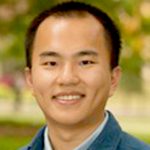
Xiyu Yang
Horticulture Ph.D. Candidate,
Pennsylvania State University
Xiyu is interested in simulating root traits that would benefit plant nutrient and water acquisition via SimRoot, a structural functional model that simulates root architecture and growth. His current focus is to simulate two traits in maize roots, larger cortical cell size (CCS) and reduced cortical cell file number (CCFN), and their interaction with the presence of root cortical aerenchyma (RCA) improving growth under suboptimal N, P and K conditions.
LODGING
Attendees must arrange their own lodging. There is a block of rooms at the Hampton Inn under “Crops in silico” but plenty of other places to stay in the Champaign-Urbana area. However, you will need to secure your own transportation to and from the meeting.
MEETING ORGANIZERS
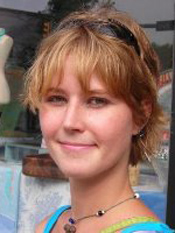
Meagan Lang
Postdoctoral Research Associate in the National Center for Supercomputing Applications at the University of Illinois

Steve Long
Departments of Plant Biology and Crop Sciences, University of Illinois at Urbana-Champaign
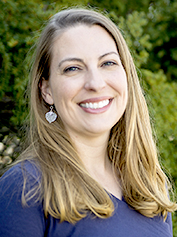
Traci Quigg Thomas
Institute for Sustainability, Energy, and Environment, University of Illinois at Urbana-Champaign
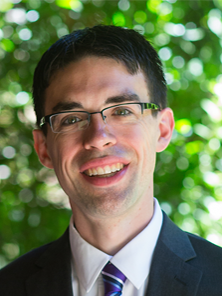
Matt Turk
School of Information Sciences and Department of Astronomy, University of Illinois at Urbana-Champaign

